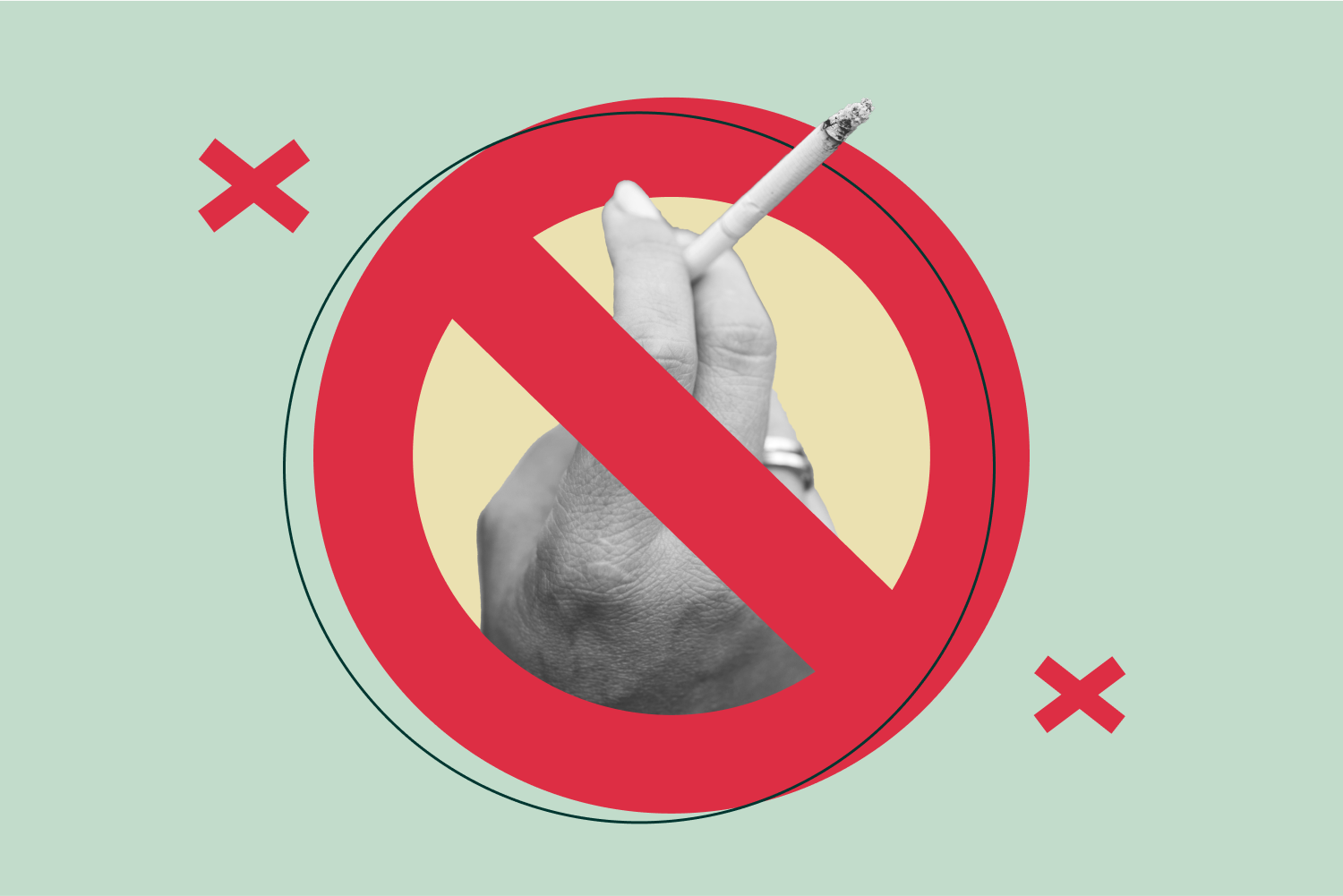Hormone Imbalance in Women: 17 Signs, Causes & Treatments
What is a hormone imbalance?
Hormonal imbalance causes
Signs of hormone imbalance
Hormone imbalance treatment
How is a hormone imbalance diagnosed?
Is it hard to overcome a hormone imbalance?
Can you still get pregnant with a hormone imbalance?

Often referred to as the body’s “chemical messengers”, hormones are a powerful force behind many bodily functions and humans have over 50 different hormones that influence our metabolism, mood, reproductive health, development, and so much more!
But what happens if these hormones are not in balance? And how does that impact your ability to get pregnant?
In this article, we’ll explore a few reasons why your hormones may be out of balance, signs and symptoms you may experience if you do have a hormonal imbalance, and solutions for getting your hormone levels on track.
What is a hormone imbalance?
A hormone imbalance occurs when the body produces too little (or too much) of a particular hormone, causing overall hormone levels to become out of balance. Because hormones are critical to organ functioning, even a slight hormonal imbalance can lead to noticeable changes in the body and the way that you feel.
Some hormonal imbalances occur naturally (such as around menopause or pregnancy), while other imbalances are a result of certain medical conditions (such as polycystic ovarian syndrome).
What causes hormonal imbalance?
Menopause
Menopause is a stage in a woman’s life where, due to decreased estrogen levels, she stops ovulating, having a period, and she is no longer fertile. This phase is notorious for causing hormonal shifts and imbalances that result in frustrating side effects such as hot flashes, mood swings, and decreased libido.
In the United States, the average age of women in menopause is 51. However, the transition phase leading up to menopause (known as perimenopause) can begin as early as the 30’s. Some of the most common symptoms of perimenopause include irregular periods, hot flashes, sleeping problems, and mood swings.
It’s important to note that even though your periods may become irregular in perimenopause, it is still possible to get pregnant during this time.
Pregnancy
During pregnancy, estrogen and progesterone levels increase by a large amount. In fact, you can produce more estrogen during pregnancy than in your whole time outside of pregnancy.
The role of estrogen in pregnancy is simple: it helps the uterus and placenta create blood vessels necessary for transferring nutrients to your growing baby. It also helps prepare your body to start producing milk.
On the other hand, progesterone during pregnancy helps your physical body support childbearing. More specifically, it helps to loosen ligaments, relax joints, and supports the growth of certain tissues and organs. For example, the ureters connect your kidneys to the bladder, and will grow during pregnancy to help adjust to a preborn child.
Polycystic ovary syndrome (PCOS)
PCOS is a common condition where the ovaries produce high levels of androgens, which are a type of sex hormone. When androgen levels are too high, this can result in irregular periods, prolonged periods, and disrupted ovulation. Heightened androgen levels may also cause fertility issues among women because they can prevent the body from ovulating.
Due to cycle irregularities, those with PCOS who are TTC may struggle to track their period using the calendar method. However, many women with PCOS have found that tracking their hormones directly has been a helpful way to predict ovulation.
For more information on PCOS, check out our article PCOS 101: What is Polycystic Ovarian Syndrome?
Birth control
Taking hormonal birth control is a completely safe way to prevent pregnancy. However, the way that it works does cause the body’s natural hormone levels to be out of balance.
For example, the hormones estrogen and progestin are used in contraceptives (e.g. birth control pills and IUDs). While these hormones are naturally produced in the ovaries, an increase in these hormones (caused by taking birth control) prevents the ovaries from releasing eggs. Without eggs, sperm cells have nothing to fertilize after ejaculation – which is how hormonal birth control works to prevent pregnancy.
Primary ovarian insufficiency
Primary ovarian insufficiency happens when the ovaries stop working regularly before a woman reaches the age of 40 – resulting in low estrogen levels and a reduced number of eggs released.
Because the symptoms are similar to menopause, ovarian failure is often mistaken for early menopause. However, it’s important to note that the conditions are not the same. Women experiencing premature ovarian failure can still have irregular cycles, ovulate, and possibly get pregnant. On the other hand, women in menopause usually cannot get pregnant because their period and ovulation has stopped altogether.
Stress or disease
Stress related to work, family, trauma, or a medical disorder can also cause disruptions to your hormone levels. The most common hormones affected by stress include glucocorticoids, catecholamines, growth hormones, and prolactin. When these hormones are out of balance, this can lead to a number of medical conditions such as hyperthyroidism, obesity, diabetes, Graves’ disease, and/or gonadal dysfunction.
In some cases, stress can also lead to irregular menstrual cycles and difficulties with getting pregnant.
For more information on how stress impacts fertility, check out our article Stress and Fertility: How It’s Connected and How to Manage It.
What are the signs of hormone imbalance?
Infertility
One common sign of a hormonal imbalance is infertility. Women are considered “infertile” if they are unable to get pregnant after 12 months of regular sex (if under the age of 35) or after 6 months of regular sex (if over the age of 35).
Heavy bleeding
Heavy menstrual bleeding (often referred to as Menorrhagia) is another common symptom of a hormonal imbalance. If a period lasts longer than 7 days, soaks through multiple pads or tampons every hour, and/or has blood clots larger than the size of a quarter, this would be considered “heavy”. It is also common for a heavy menstrual flow to also be accompanied by lower stomach pain, lack of energy, and/or shortness of breath.
Irregular or missed periods
Irregular or missed periods can also occur due to a hormonal imbalance. The average length of a menstrual cycle is 28 days (although anything between 21-35 days is considered normal). If your own personal cycle length varies from cycle to cycle, this would be considered irregular. If you have not had a period for 6 weeks or more, this would be considered a missed period.
Acne
Many people assume that acne is only related to hormonal changes during puberty, however, there is a life-long link between acne and hormone levels. For example, the menstrual cycle is a relatively harmless and common trigger for acne.
However, if you find that your symptoms of acne are worsening over time or accompanied by other symptoms such as missed periods, hair loss, or weight gain, your doctor may want to check your hormone levels for an underlying problem.
Hair loss or thinning
Hormonal imbalances may result in temporary hair loss. Hair loss or thinning tends to occur around pregnancy, after childbirth, or at the beginning of menopause. A low amount of thyroid hormone levels or a high amount of androgens are also known to cause hair loss.
Hair growth
In addition to hair loss, it is also common to experience unwanted hair growth when androgen levels are too high. This is known as hirsutism, and it can cause hair to grow in excess on the face, arms, back, chest, abdomen, or upper thighs.
Weight gain
Hormones play an important part in regulating your metabolism (i.e. the body’s ability to use energy). That’s why the risk of weight gain and obesity is increased in those with certain hormonal disorders, such as hypothyroidism or Cushing syndrome.
Additionally, weight gain is also possible in individuals struggling to manage stress levels, since stress causes the body to increase production of the stress hormone cortisol. In addition to causing increased appetite, heightened cortisol levels can also increase fat storage rates.
How can you fix a hormone imbalance?
Hormone treatments
If you are trying to avoid (TTA) pregnancy, there are a number of hormonal birth control medications available that may help to balance your hormone levels. In addition to preventing pregnancy, this type of medication is also used to treat irregular periods, heavy periods, and other menstrual-cycle related symptoms.
This type of hormonal birth control can be prescribed by your healthcare provider as a pill, vaginal ring, skin patch, or a series of injections.

A little extra support from an expert can go a long way
Book an online consultation with one of our Hormone Health Coaches.
Schedule NowHormone therapy
One of the most common ways to treat a hormonal imbalance due to menopause is with hormone replacement therapy. When undergoing this type of treatment, patients are prescribed medications containing female hormones to replace the ones the body no longer makes after menopause. In turn, this can help to alleviate common symptoms of menopause including hot flashes and vaginal discomfort.
Fertility medications
If you are TTC but struggling to balance your hormones and regulate your cycle, there are certain medications such as Clomid (clomiphene citrate) which are designed to help the body ovulate. This type of medication is often used in patients with PCOS or other fertility issues, with one research study demonstrating that the use of clomiphene citrate stimulated ovulation in 78% of participants.
Anti-androgen medications
If you are struggling with high levels of androgens in your body (such as testosterone), your doctor may suggest certain anti-androgen medications to help bring your hormones back to balanced levels. This is particularly common in cases where heightened androgen levels are to blame for symptoms of hair loss or hair growth, acne, or weight gain.
Read these ways to balance your hormones naturally
How is a hormone imbalance diagnosed?
Diagnosis for a hormone imbalance typically begins with a physical exam at your doctor’s office. During this exam, your doctor will ask you to describe any symptoms that you are experiencing (such as acne, mood swings, unexpected weight gain, hair loss, etc.) and when these symptoms tend to occur.
Your doctor will likely also want to know about any recent changes to your:
Diet or exercise regime
Stress levels
Menstrual cycle
Libido
Sleeping patterns
Mood
Based on your individual symptoms and situation, your doctor may want to run further testing to assess your hormone levels and overall health. This could include any of the following: a blood test, pelvic exam, ultrasound, thyroid scan, MRI, x-ray, and/or biopsy.
Is it hard to overcome a hormone imbalance?
Because hormones affect so many different processes of the body, managing hormone-related symptoms and pinpointing the exact cause of these symptoms can take some time. For that reason, some individuals may find it difficult to overcome a hormonal imbalance. This is especially true for couples trying to get pregnant.
If you or a loved one is experiencing a hormone imbalance, it’s important to remember that there are science-backed solutions and treatments available. The best place to start is by examining any lifestyle factors that may be influencing your hormones. If you are still struggling even after making any necessary lifestyle changes, it’s a good idea to make an appointment with your doctor for further advice and support.
Can you still get pregnant with a hormone imbalance?
It depends.
If you have a hormonal imbalance and are still ovulating, then yes, it is still possible to become pregnant. However, those with hormonal imbalances often experience cycle irregularity, which can make predicting ovulation and planning a pregnancy difficult.
If you have a hormonal imbalance and are TTC, know that there are a number of methods, tools, and lifestyle changes you can make that may make conception easier. A good place to start is by simply getting to know your body better through any one of these four fertility awareness methods (FAMs). If you’ve tried these methods but are still struggling to balance your hormones and conceive, it’s a good idea to speak with your doctor. They can then provide you with further advice and treatment options.
If you have a hormonal imbalance but you are not ovulating, it is not possible to get pregnant as pregnancy requires an egg that is only released through ovulation.

Mira’s Editorial Process
All content produced by Mira meets stringent editorial standards, ensuring excellence and accuracy in language and medical precision. Every piece undergoes thorough fact-checking and review by qualified professionals. Check out our full editorial process to learn more.










